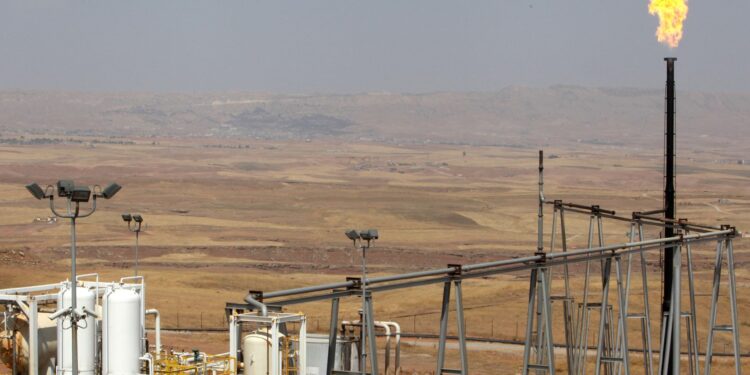Al -Jazeera Net Correspondents
Baghdad- The oil sector is the backbone of the Iraqi economy, as the country relies heavily on the export of oil by approximately 90% to cover the budget expenses and meet the local needs of oil derivatives.
In a move aimed at enhancing self -sufficiency and reducing dependence on import, Iraqi Prime Minister Muhammad Shi’a Al -Sudani announced near the arrival of the refining energy of Iraqi refineries to a record level of one million and 542 thousand barrels per day, described as an unprecedented development in the history of the Iraqi oil industry.
The oil refineries sector in Iraq consists of 3 government companies: North, Central, and South Oil, and includes 14 filters producing more than 1.2 million barrels per day, covering about 70% of the local need of 31 million liters per day.
Strategic transformation
Economist Mustafa Hantoush believes that government steps to develop the refineries sector and develop local production represent a strategic shift that may have positive effects on the Iraqi economy.
Hantoush explained – in his interview with Al -Jazeera Net – that Iraq faces actual challenges in meeting the increasing demand for derivatives, noting that the country imports about 15% of its needs of regular gasoline, and 80% of the beneficial gasoline.
He referred to the Karbala refinery, whose production capacity reaches 140 thousand barrels per day, as a model that can be repeated in other ranks, such as Baiji and Al -Qadara. He stressed that if production stabilizes in these refineries, dependence on import may be reduced, which reduces the financial burden on the state treasury.
He added that Iraq has achieved self -sufficiency in some other derivatives such as aircraft fuel, and that the development of refineries in parallel with increased gas and oil production may provide large sums. He indicated that the capacity of storage in current refineries is about 600 thousand barrels per day, with the possibility of raising it to meet the local demand that is close to one million barrels per day.
Hantoush pointed out that achieving self -sufficiency in refining does not necessarily require that all refineries be governmental, but the private sector can participate in the production of industrial derivatives, by buying crude oil at competitive prices.
OPEC data shows that the refining capacity of Iraq’s refineries amounted to 1.11 million barrels per day by the end of 2021, but actual production was less, as it did not exceed 623 thousand barrels per day, as a result of the work of several ranks with less than its design capacity, especially after it was damaged in the periods of armed conflict.
Reducing
For his part, oil expert Kazem Jaber stressed that relying on national cadres to develop the oil derivatives sector is a realistic option to advance this vital industry. He pointed out in his speech to Al -Jazeera Net that the opening of the Maysan refinery, with a capacity ranging between 70 and 120 thousand barrels per day, will contribute to covering the local demand and reduce the need for import, which reduces the burdens on the state budget.
Jaber indicated that Iraq imported oil derivatives worth $ 3.3 billion in 2021, and that the government is seeking to reduce this number by supporting local production. He considered that the completion of the Maysan refinery with national cadres is an important step, especially in light of the reluctance of investors from this sector due to the weakness of the profit margins resulting from support for fuel prices.
He noted that the cadres of the Ministry of Oil succeeded in implementing large projects, including the rehabilitation of the Baiji refinery within a short period, expecting the completion of the Maysan refinery during a period ranging between 6 and 8 months.
Jaber concluded that reducing dependence on import represents a reform path in the oil sector, and may contribute to achieving self -sufficiency, but it is conditional on the existence of a realistic investment environment and accurate implementation plans.



